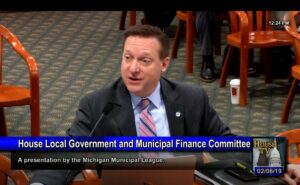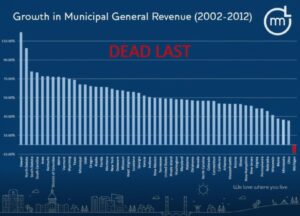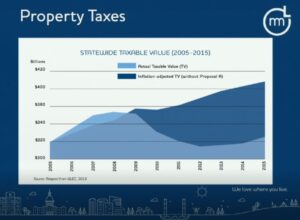T
We’re also encouraged that three of the committee members – Rep. Alex Garza (D-Taylor), Rep. Padma Kuppa (D-Troy), and Rep. Brad Paquette (R-Niles) – are former local government officials now serving their first term in the Legislature.

Following Hackbarth’s testimony (which you can watch here starting at the 27:15 minute mark) we were very encouraged to hear committee Chair Rep. James Lower (R-Cedar Lake) say, “It is going to be a priority of this committee to talk about the municipal finance structure and I think you did an excellent job of laying out the League’s perspective.”

But revenue sharing, one of the primary sources of income for cities, has been shrinking over the past decade and local governments have had to fill the gap. Since 2002, the State of Michigan has diverted $8.6 billion from communities and used it to fund state operations. That’s a very big gap to fill.

Hackbarth stressed that the League wants to partner with Governor Whitmer’s administration and the Legislature to make revenue sharing a priority. If we can help our communities thrive, the state will fare better as well. The League is open to looking in many directions to find a solution. Working with the Legislature makes more options available.